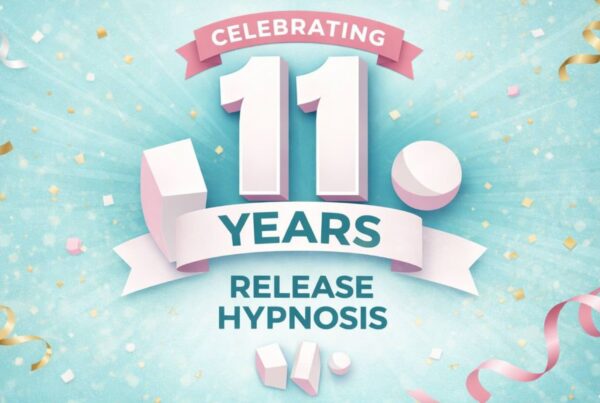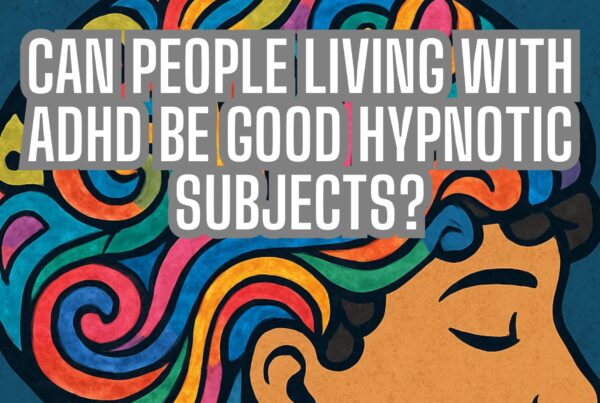5 Ways To Become a Better Hypnotherapist
When it comes to being a hypnotherapist, I doubt there are few of us who can claim to know it all. I remember back to my days when I was studying, one of my lecturers was telling us a story about Milton Erickson, possibly one of the most famous hypnotherapists ever. Now, I will readily admit that I am paraphrasing here and I can’t seem to find the actual quote, but I do love this story and it does offer so much to me that I feel the need to share it. As Milton was drawing towards the end of his life, he apparently observed that he had been doing this hypnosis work for most of his life and he was only just beginning to get the hang of it. If the world’s greatest hypnotherapist felt that way, then it certainly gives me permission for feeling that there is still so much to learn at this early stage of my career.
And yet I’m in a unique position because I’ve been doing this enough to have some insights about this, and I’ve been fortunate to frequently spend time with people who have been doing this for decades and who are willing to share their insights about this This article has been written for those of you out there who question if you know enough, or if you need to do another course, or if you have a desire to ensure that you’re responsible for the change of every client. I hope these words offer some insight for you, or at least a timely reminder because I’m sure many of these concepts are ones that you will already know.
Confidence and Self Belief as a Hypnotherapist
I think the #1 issue that most hypnotherapists have is their own confidence and belief that they can offer something of value. I’ve often noted that there can be some cocky personalities in our field but have also often noted that many of these same people have testimonial after testimonial from people praising them for their work. It creates a paradox; does that cockiness and self belief that they have drive their rate of success?
The reality is that we are dealing with complexity here. All human beings are unique. We might all have shared concepts of an emotion but we’re all likely to feel variations of that emotion, are we not? We all come to experience those emotions in our own unique way. We all develop our reality from our meanings that we make from our thoughts from experiences. All of us are truly complex.
When you’re dealing with complexity, there are a lot of unknowns to be working with. I love the metaphor that James Tripp recently shared being that the surfer does not control the wave. Instead, we dance with what is unfolding in the moment. This is why trying to make your client fit to a script or a technique can have their limitations when instead your client is the script.
Confidence comes from learning how to surf that wave, to allow the client to bring what they have in the moment, and to simply help guide them to the change that they desire which has brought them to see you.
You are not responsible for your client’s change
This leads me to my next point; you are not responsible for their change.
You can be there, fully present and help guide them through their experience however you are as much responsible for their change as anyone else has been responsible for any changes you’ve made in you.
You already know that if a smoker is not truly ready to change, then the chances of their change happening are slim. You can help to build that desire but the only person who is going to stop that smoker from smoking is themselves. You are simply helping guide their experience into that new identity of being a non-smoker. If they choose to accept that or not is outside of your control.
So you can be free of that responsibility. If someone chooses not to make that change, it doesn’t necessarily mean that you’re crap. If you can be free of your concept to be responsible for their change, then you can give yourself permission instead to be fully present to the moment and pick up on the things that the client is offering that you might otherwise miss.
I’ll give you an example; I had a client recently who came to see me to stop smoking. The more I talked about how those cigarettes were controlling him, the more it seemed to have little effect. While I can’t remember the exact comment that he made, it was a moment of being fully present that allowed me to capture it and say, ‘hang on, can I ask you – do you like the idea of being controlled?’ From the facial reaction and the shift in the seat that I saw, I knew that I had hit on something and sure enough, that client was able to let the smoking habit go. If I had been caught up in my protocol and fear of losing a certain percentage of success rate, I may have been too in my head to make the work meaningful. In many ways, what I’m offering is that we can help our clients make the best change when we let go of the responsibility for their change. It’s a paradox but it works.
A hypnotherapist should always keep learning
If you only have a hammer in your toolkit, everything begins to look like a nail.
There is no harm in exploring and being curious. There is benefit in continuing to learn and to discover what works better for you. What are the things that people say and do that you can adapt and take on to be uniquely yours.
This doesn’t have to be expensive, nor does it have to be lengthy course after lengthy course. I’ve had more insight from my $17 Audible subscription than I’ve had from some $300 courses. It’s about keeping an open mind, and allowing that awareness that there is always something interesting to learn drive your desire.
As the wonderful Rob McNeilly always says, ‘may the learning continue’. I might add that it was his training that helped me to recognise that I was not creating the hypnosis for the other person but simply allowing them to do it in their way. That shift in perception was a profound one as suddenly I went from being in my head trying to make ‘hypnosis happen’, to being the observer on this experience with my client and helping them to find their own inner experience to become absorbed by. That’s the value in continuing to learn; those simple reframes that allow us to drop our own limiting beliefs about our abilities and to bring the focus where it needs to be – on the client.
But there is no magic bullet
There is a flip side to this though; there is no magic bullet training. There is no one-size-fits-all cure. Remember, we are dealing with complexity here and what we are doing is exploring, being curious, and being present for our clients.
Sadly, this search for a magic bullet will have people taking course after course in the hope of finding that one thing that makes them the next Milton Erickson. In the process, they’ll often not fully absorb or practice what is being offered. They’ll have taken tens of, even hundreds of courses and walk away still feeling like they don’t know enough. I know, because I’ve done this too. It’s time to stop. Slow down. Learn one process, practice it thoroughly until you know it inside out.
The conversations I’ve had with the vast number of professionals that have been in the industry for a while is that it is far more beneficial for both you and your clients to know a small handful of approaches inside out and well than it is to try to know everything and do it poorly.
To be honest, the more I explore various training now, the more I simply see similar concepts recycled and re-badged as something new. This is not to bag those who are placing their own spin on it; more power to them and often I’m grateful for their insight that has provided a new nugget of information that has help bring that picture more to life. I’ve often seen techniques as being like a jigsaw puzzle. You begin to learn it and you start to put the puzzle together but then there still seems to be these random pieces that you’re not quite sure how they fit in. Then someone comes along and picks up that piece and says, ‘here! It goes here! ‘ and the picture becomes even closer to being complete. This is where the value of networking and connecting and sharing within our community becomes even more important.
If you want to be the best hypnotherapist, practice and then practice more
I recall a video by US hypnotherapist Scott Sandland a year or so ago. This was a Scott rant and it had a profound effect on me. This was a hypnotherapist who was giving some home truths to people with the most positive of intention. He said loud and clear in this if you want to be the best hypnotherapist out there, don’t go after magic bullet courses – just practice and then practice some more. He even suggested practising to your teddy bear and then recording your practice and listening back to that to reflect on how you’ve done. If you want to be the best, then practice until you are the best. I loved him for creating that video and sending out a message that is truly authentic and genuine.
He is right. The only way you’re going to become the best is to practice with what you know until you are the best. If you don’t know enough, then maybe some self-reflection is needed as you go to determine what are the gaps that you feel you may need some more assistance on. Recognise though that this is something that takes time. You don’t go from learning something new one day to being the master of it the next, and we often have our own self-expectation to blame for that. While we all hate journey metaphors, the sooner we can recognise that we need those clients where things don’t go to plan in order to learn, the better.
One of the things I know about my own learning style is that I can sit in a class, I can listen to the lecture, I can watch the demonstration videos, I can plot out my own step by step. I can do all these things however it is only after I start to JUST DO IT that my own insights and questions about the approach will appear. Inevitably, during the class we’ll be asked if there are any questions but I won’t have any then because I won’t know what I don’t already not know yet. Once I start to do it, then I will begin to know what I don’t know. Practice, follow up, reflect, compare.
But then, what do I know?
As I come to the conclusion of this article, I feel the need to share; of course, I don’t know everything. There are days when I feel like I don’t know anything, and that’s ok. We are, after all, human beings who are complex. Each day, I’m still learning too and there is every chance that in another five years, I might look back at this piece, roll my eyes and give a ‘pfft’ sound at some of the suggestions. Maybe you’re doing that now? That’s ok too – these are simply some of my insights that help me each day to bring a focus where it is needed, get out of my own head, and keep me on the right track. For those who are having a day where you feel like you know nothing, I hope that these ideas may provide you with that too.
You may also like to read:
Coronavirus (COVID-19) Update to Release Hypnosis
Release Hypnosis Celebrates 5th Anniversary
Isn’t It Time To Tell That Smoking Habit To Butt Out Of Yuor Life?
Melbourne Hypnotherapists Practice & Network Group








